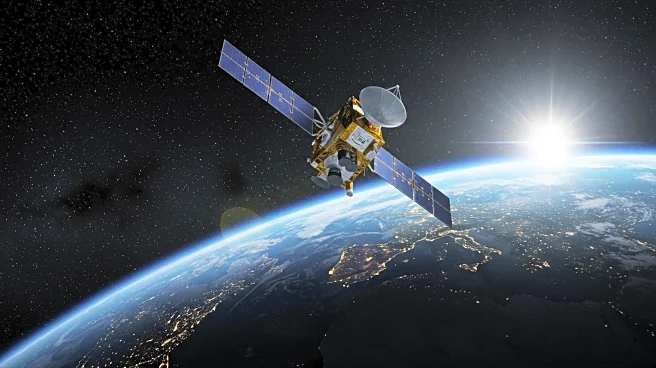What's Happening?
Amazon's Project Kuiper has successfully launched over 100 satellites, marking a significant milestone in its satellite internet initiative. The launch, conducted via a SpaceX Falcon 9 rocket from Cape Canaveral Space Force Station, brings the total number of operational satellites in the Kuiper constellation to 102. This development is part of Amazon's plan to provide global low-latency, high-speed internet services, particularly targeting underserved regions. The Federal Communications Commission (FCC) has mandated Amazon to launch and operate at least half of its authorized 3,236 satellites by mid-2026, with service trials expected soon and a commercial rollout by that time.
Why It's Important?
The expansion of Amazon's satellite network is poised to significantly impact global internet accessibility, particularly in underserved areas. By increasing the number of operational satellites, Amazon aims to offer high-speed internet services that could bridge the digital divide. This initiative not only enhances Amazon's competitive position in the satellite internet market but also underscores the growing importance of satellite technology in global communications infrastructure. The collaboration with SpaceX, despite their competitive interests, highlights strategic partnerships in achieving technological advancements.
What's Next?
Amazon is expected to continue its satellite launches to meet the FCC's requirements, with service trials anticipated soon. The commercial rollout of Project Kuiper is planned by mid-2026, which could lead to increased competition in the satellite internet market. Stakeholders, including internet service providers and technology companies, may respond to this development by exploring similar initiatives or partnerships to enhance their service offerings.









